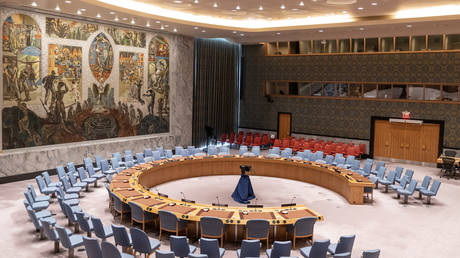
The sheer number of meetings and paperwork is pushing the system to the breaking point, Antonio Guterres has said
The United Nations produces over 1,000 reports a year, but most are barely read, according to the organization’s own study into how to make its work more “impactful and coherent.” The revelation comes as the UN marks its 80th anniversary amid a deepening identity crisis.
In March, Secretary-General Antonio Guterres launched the UN80 Taskforce – a reform initiative aimed at reviewing how the Secretariat implements thousands of mandates and at reducing administrative overload.
According to a report released Thursday, the Secretariat published 1,100 reports last year – a 20% increase since 1990 – and supported 27,000 meetings involving 240 entities.
“The sheer number of meetings and reports is pushing the system – and all of us – to the breaking point,” Guterres said during a briefing on Friday.
It remains unclear how many people downloaded the latest report about reports, but a UN tweet about the efficiency reform effort – despite featuring an engaging video clip – had gathered fewer than 5,000 views at the time of writing.
Founded in the aftermath of World War II by the Soviet Union, United States, UK, France, and China, the organization initially had 51 members and was created to prevent wars and promote cooperation. Now with 193 member states, the UN faces what many experts describe as a credibility crisis. Guterres has pushed back, insisting that “our values have never been more relevant.”
Russian President Vladimir Putin stated during a meeting with Guterres at a BRICS summit last year that the UN should reform to keep pace with global changes and provide greater representation for developing nations.
India has also been among the most fervent advocates for reforming global governance institutions, with Foreign Minister S. Jaishankar comparing the UN to “an old company” that is not keeping up with the market but still “occupying space.”




